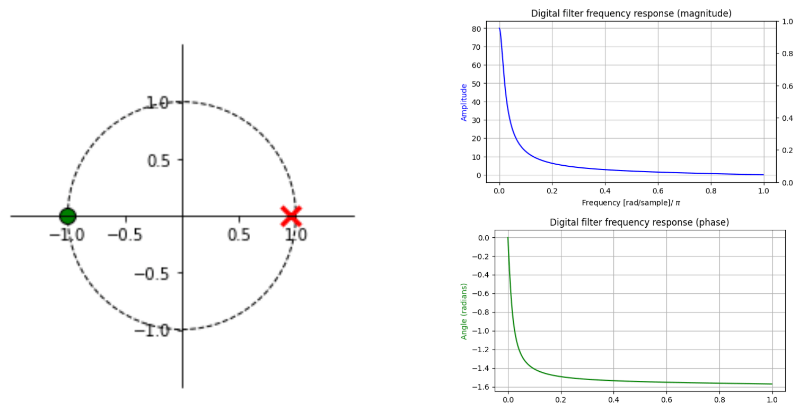The course gives an introduction to signal processing in media technology with a focus on media production and sound and music computing. Examples are provided through existing applications, for example compression of sound and images or manipulation of media content by means of digital filters. The course introduces basic concepts with one-dimensional signals for example speech and music and expands these concepts to multi-dimensional data such as images and video.
Properties for discrete time signals and systems and basic signal manipulations are introduced. These manipulations use finite and infinite impulse response filters. The required signal manipulations are introduced (e g discrete Fourier transform, z-transform), as well as related mathematical operations (e.g convolution, correlation).
The theoretical background will be strongly attuned to practical and laboratory components in lectures and online exercises to relate theory to practical applications in industry.
DM1135 Multimedia Systems and Signals 7.5 credits

The course provides basic theory of and practical examples in media signal processing, with a special focus on media production, and sound and music computing.
Information per course offering
Choose semester and course offering to see current information and more about the course, such as course syllabus, study period, and application information.
Information for Autumn 2026 Start 24 Aug 2026 programme students
- Course location
KTH Campus
- Duration
- 24 Aug 2026 - 23 Oct 2026
- Periods
Autumn 2026: P1 (7.5 hp)
- Pace of study
50%
- Application code
11121
- Form of study
Normal Daytime
- Language of instruction
English
- Course memo
- Course memo is not published
- Number of places
Min: 1
- Target group
- Open for all programmes from year 3, and for students admitted to a master's programme, provided that the course can be included in the programme.
- Planned modular schedule
- [object Object]
- Schedule
- Schedule is not published
- Part of programme
Contact
Course syllabus as PDF
Please note: all information from the Course syllabus is available on this page in an accessible format.
Course syllabus DM1135 (Autumn 2024–)Content and learning outcomes
Course contents
Intended learning outcomes
Having passed the course, the student should be able to
- account for the basic mathematical properties in digital media signals
- explain and apply frequency domain transforms
- implement and modify digital filters with finite (FIR) and infinite (IIR) impulse response and apply them to media signals
- explain and compare compression algorithms for media signals
- recommend appropriate signal processing methods for different areas of media production
- modify and adapt media applications that use signal processing
in order to
- be able to adapt, integrate and evaluate signal processing methods in media production and application development.
Literature and preparations
Specific prerequisites
Knowledge and skills in basic programming, 6 credits, corresponding to completed course DD1337/DD1310-DD1319/DD1321/DD1331/DD100N/ID1018
and also at least one of following:
- knowledge in Linear Algebra, 7,5 credits, corresponding to completed course SF1624/SF1672/SF1684
- knowledge in Calculus in One Variable, 7,5 credits, corresponding to completed course SF1625/SF1673
- knowledge in Calculus in Several Variables, 7,5 hp, corresponding to completed course SF1626/SF1674.
Active participation in a course offering where the final examination is not yet reported in Ladok is considered equivalent to completion of the course.
Registering for a course is counted as active participation.
The term 'final examination' encompasses both the regular examination and the first re-examination.
Literature
Examination and completion
Grading scale
Examination
- LAB1 - Laboratory work, 4.5 credits, grading scale: P, F
- HEM1 - Take-home assignment, 3.0 credits, grading scale: A, B, C, D, E, FX, F
Based on recommendation from KTH’s coordinator for disabilities, the examiner will decide how to adapt an examination for students with documented disability.
The examiner may apply another examination format when re-examining individual students.
If the course is discontinued, students may request to be examined during the following two academic years.
HEM1 also includes an individual oral exam based on the homework.
Examiner
Ethical approach
- All members of a group are responsible for the group's work.
- In any assessment, every student shall honestly disclose any help received and sources used.
- In an oral assessment, every student shall be able to present and answer questions about the entire assignment and solution.
Further information
Course room in Canvas
Offered by
Main field of study
Education cycle
Supplementary information
In this course, the EECS code of honor applies, see:
http://www.kth.se/en/eecs/utbildning/hederskodex.